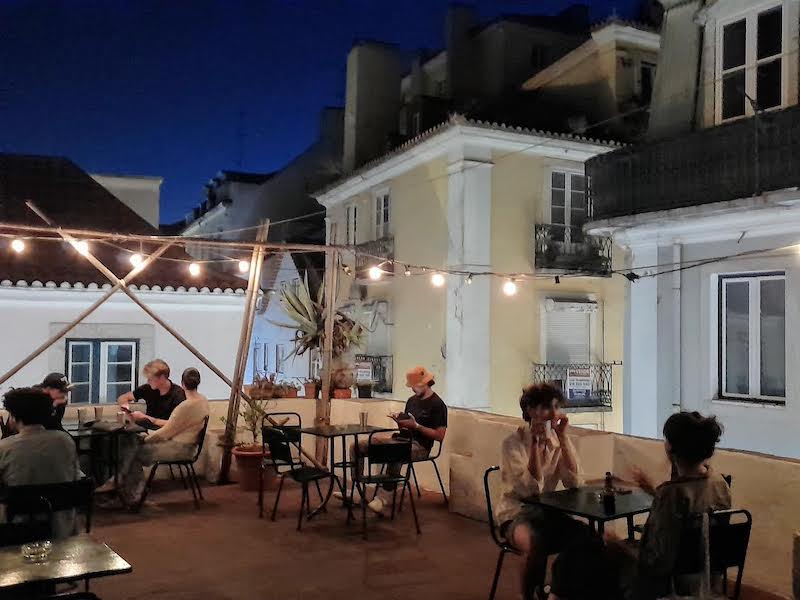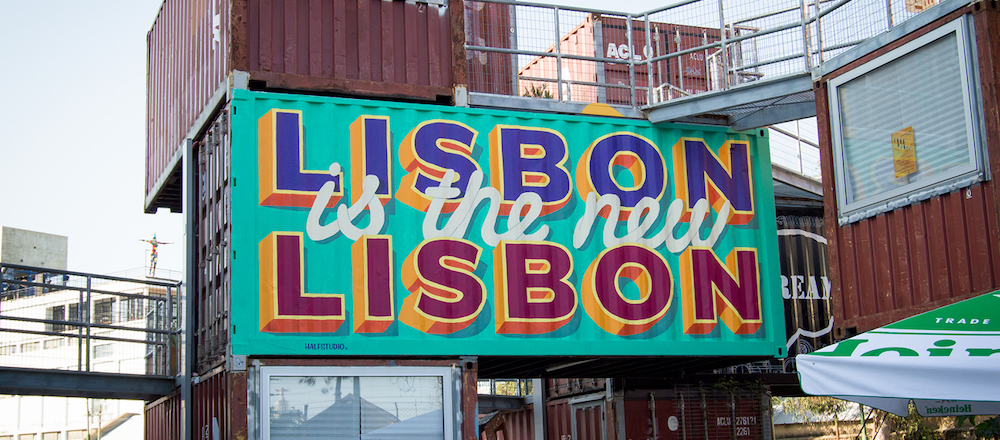Lisbon is one of those cities which has been changing rapidly over the last few years. I remember Lisbon being very different in 2015 from when I returned for a visit in 2016. It was also crazy different in 2018 compared to how it was in 2016.
And I can’t begin to explain how much it changed after the pandemic.
Those changes comprise an increase in all those aspects: prices, leisure options, and tourists.
But how can we objectively reflect on those changes? What is the good, the bad, and the ugly about those changes? And how do they affect decisions to move to or leave Lisbon at the moment?

Entertainment and cultural life
My Portuguese friend Joao, who is a curator and a researcher, is slightly over 40 years old. He told me that 20 years ago, Lisbon streets were almost empty even in the downtown area. The available live music options were only a small fraction of what we have now. Ethnic food restaurants were very limited and he could totally have the street to himself on a weekend evening in central Lisbon.
He is happier to be living in a city with increasing entertainment options everyday.
And while a small part of him misses how quiet Lisbon was, he is also happy with how the city is becoming more and more international.
It is indeed difficult to be bored in Lisbon. For a relatively small-sized capital, there are dozens of parties on weekdays, theater performances, bars open to a late hour, and countless music festivals all year round. It is also easy to make friends in Lisbon and to have a busy social life as many newcomers keep arriving in the city.
Housing

It is impossible to discuss the housing crisis in Lisbon without referring to the constant gentrification of the city. This is a widely discussed issue among Lisbon residents. You will even see graffiti in the streets which says “End Gentrification” or something to that effect every now and again. Gentrification refers to a change in the character of poorer neighborhoods leaving out its local inhabitants from this wave of improvement and luxurious changes.
The neighborhood of Mouraria is a great example of that. It is a historical, very beautiful part of Lisbon. The neighborhood was home for many working class Portuguese families until the early 2010s when gradual gentrification took place. This involved turning many apartments, if not entire buildings, into Airbnb properties which led to the phenomenal increase of rent prices.
This is all to say that Lisbon started out as a place where expats and immigrants can seek out cheaper cost of living for a high quality of life. Now, and unless you are on a “good” foreign wage, you will realize that housing expenses are taking up more than half of your income.
The average rent prices in Lisbon is currently higher than Rome and Berlin. So yes, a stable financial situation which allows you to spend between 1,500-to-2,000 euro on housing expenses a month for a 2-bedroom apartment is needed before making your move to the formerly affordable city.

Tech business
It is no secret how Lisbon has been flourishing for the last few years as a global tech hub.
Since 2016, Lisbon witnessed a consistent 30-percent annual increase in investments. Needless to mention that since 2022, Portugal outgrew Spain, Greece, and Italy combined in launching unicorns (Belion Partners).
This is all due to the Portuguese capital offering the perfect ecosystem for tech startups from residency options facilitated by the government to the nice climate and highly skilled talents. Therefore, if you are looking to become an entrepreneur or to join the increasingly growing tech ecosystem, professional opportunities would be quite promising for you in Lisbon.
However, professional fields which operate outside the scope of tech, fintech, and startups, such as teaching, journalism, among others, seem to be struggling in Lisbon at the moment either due to poor wages or scarce opportunities.
Social life, housing, and job opportunities are crucial factors in determining the quality of life of any place.
That is why before deciding to move to Lisbon (or before deciding to remain in Lisbon if you are already living here), ask yourself these important questions:
- Do you have an existing source of income?
- If not, and you are looking to work in Lisbon, which field would you get into?
- If you are starting your own business or if you are looking for a job in tech, you will probably make enough money. If you are looking for a local job in other sectors, there is a chance you will struggle to match the current prices of rent and/or mortgage in Lisbon.
As someone who values social life and mental well-being greatly, I have to admit that I can’t put a price on the sunshine, friendly people, and vibrant culture. I don’t come from tech and I don’t want to become an entrepreneur, so I am one of those who accepted the compromise living in Lisbon entails.
But, I am content with my life here … till now.
–––––––––
Read more about Lisbon here in Dispatches’ archives.
Sarah Nagaty has a PhD in cultural studies, She’s lived in Portugal for six years.
As a student of cultural studies, Sarah is drawn to what connects people from different backgrounds to new cultures and places, how they relate to their new surroundings and what kind of activities they could engage with in their new hometowns.















